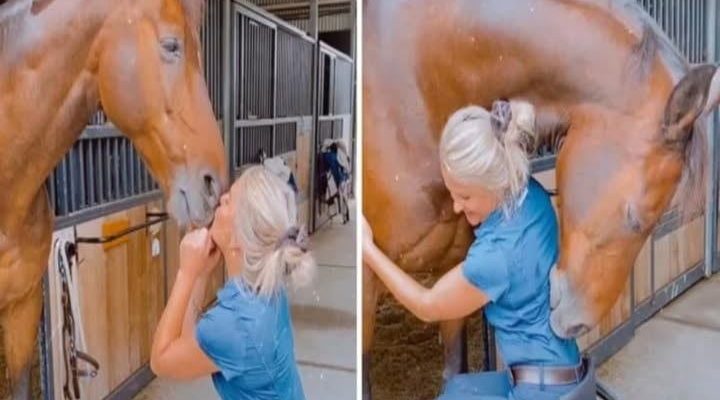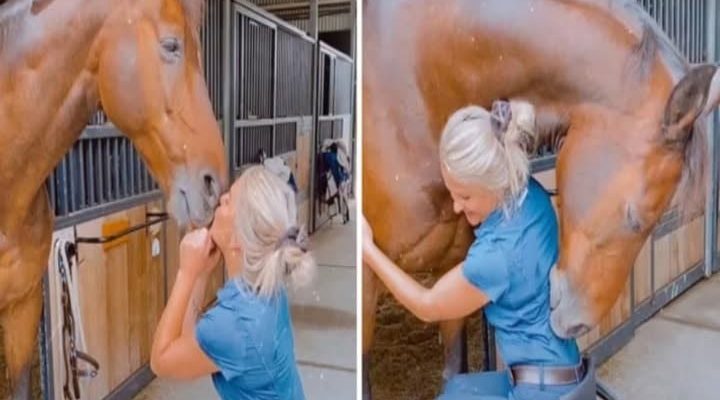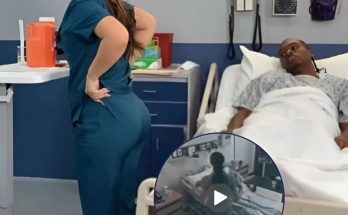People often say that you never forget your first deeply personal experience. For many, these experiences are thought of as milestones, moments of growth that are memorable for reasons of excitement, anticipation, or joy.
Perhaps it’s the kind of moment you’ve been waiting for, or that you imagine will be filled with fun, enthusiasm, and a bit of nervous excitement. But my first experience was far from anything I could have imagined.
Instead of feeling like a rite of passage, it was marked by fear, confusion, and a sense of chaos that left me questioning everything.
At the time, I had no idea how my body would respond, or how I would handle what was to come. What I remember most vividly is not the feeling of excitement or even nerves, but the overwhelming sensation of fear.
I remember the tears streaming down my face—tears that I couldn’t seem to stop, despite trying to hold them back. There was no sense of peace or comfort in that moment. Instead, I felt trapped in a whirlwind of emotions, unable to make sense of what was happening.
I was surrounded by people, yet I felt completely alone. A close friend of mine stood by my side, holding my hand, trying to offer support, but there was so much happening around me that I couldn’t focus on anything.
The medical staff, their faces set with determination, moved urgently, working to stabilize me, to help me in a way that I felt was beyond what I was capable of doing for myself.
The sense of panic in the air was palpable, and I couldn’t escape the feeling that things were spiraling out of control.
The situation should have been something intimate—something personal—but it quickly escalated into a chaotic and terrifying series of events.
Instead of feeling the excitement that comes with a new experience, I felt a deep sense of dread, unsure of what the outcome would be. A simple moment that should have been private and empowering became something I couldn’t have anticipated:
a panicked bathroom scene followed by a rushed trip to the hospital, filled with what felt like endless hours of examinations and tests.
What was supposed to be a normal part of life for so many people quickly became something that I couldn’t control.
What I didn’t know at the time, but came to understand much later, was that what happened wasn’t simply a result of bad luck or coincidence. It was preventable.
If I had known what to do, if I had been more aware of my own body and the risks involved, perhaps I wouldn’t have ended up in that hospital room, feeling so confused and vulnerable.
The worst part of the whole experience wasn’t the physical pain or discomfort—it was the emotional toll it took on me.
There’s a certain silence that surrounds these kinds of experiences. We grow up hearing about the milestones of life in a way that makes them seem fun, lighthearted, and exciting.
But these experiences are often glossed over in our culture. We’re told that it’s something to look forward to, that it’s a natural part of growing up or moving forward.
But we rarely hear the truth about what happens when things go wrong. When complications arise, when things don’t go as planned, there’s no easy fix, and certainly no “funny story” to tell afterward.
It’s not something you can laugh about or take lightly when the situation takes a turn for the worse.
For many young people, especially when it comes to health, there’s very little education around the physical, emotional, and psychological aspects of our bodies.
We’re left to rely on myths, rumors, and unreliable sources of information, often from peers or through hearsay. What we don’t learn about are the potential risks or what could go wrong if we’re not properly prepared.
We don’t learn the language of our bodies, or how to communicate our needs in a way that keeps us safe. As a result, when something does go wrong—when the worst happens—it often leads to confusion, feelings of shame, and immense fear.
Looking back now, I realize how different the experience could have been had I known more about my own body, about the warning signs, and the importance of proper communication with trusted medical professionals.
I could have avoided the confusion that came afterward—the questioning of myself, the feeling that I somehow failed in the moment. If I had been given the right education and preparation, I might have been able to avoid the panic and the emotional aftermath that followed.
It was later, when I spoke with a doctor about what had happened, that I finally understood that the injury I sustained could have been avoided with the right precautions.
What felt like an insurmountable problem could have been prevented entirely, had I only been more aware of the steps I should have taken beforehand.
It became clear to me that not only was the physical aspect of what happened something that could have been managed, but the emotional fallout was something that could have been avoided as well—if I had known the right things to do.
The sense of shame that I felt after the incident stayed with me for a long time. I questioned myself endlessly, replaying the night in my mind, wondering if I had done something wrong.
It wasn’t just about the physical recovery—it was about the emotional recovery that took so much longer. I felt embarrassed, scared, and deeply uncertain about what had happened.
The fear that lingered wasn’t just about the immediate danger but about my own sense of vulnerability. I didn’t know what to do, and no one seemed to have prepared me for this kind of emotional and physical upheaval.
As time went on, I realized that the root cause of everything—the confusion, the fear, the shame—was a lack of education.
I didn’t know what to expect from my own body, and because of that, I was ill-prepared to handle a situation that, in hindsight, could have been avoided. There’s a powerful lesson in that:
that the more we understand our bodies, the better equipped we are to handle whatever life throws our way. And that knowledge isn’t just physical; it’s emotional and psychological, too.
What I wish I had known then, what I hope others can learn from my experience, is that it’s not enough to just go through life blindly.
It’s important to have open conversations about our bodies—about our health, our safety, and our emotional well-being. It’s critical that we stop pretending that these things are “too awkward” to talk about.
By educating ourselves about what’s going on with our bodies, by learning the right steps to take to protect ourselves, we can avoid the fear, the confusion, and the shame that often accompany unexpected situations.
We need to have these conversations, and we need to have them early. We need to be prepared, not only physically but emotionally. And, most importantly, we need to stop leaving people in the dark about these deeply personal experiences.
They don’t have to be scary, and they certainly don’t have to be isolating.
People often say that you never forget your first deeply personal experience. For many, these experiences are thought of as milestones, moments of growth that are memorable for reasons of excitement, anticipation, or joy.
Perhaps it’s the kind of moment you’ve been waiting for, or that you imagine will be filled with fun, enthusiasm, and a bit of nervous excitement. But my first experience was far from anything I could have imagined.
Instead of feeling like a rite of passage, it was marked by fear, confusion, and a sense of chaos that left me questioning everything.
At the time, I had no idea how my body would respond, or how I would handle what was to come. What I remember most vividly is not the feeling of excitement or even nerves, but the overwhelming sensation of fear.
I remember the tears streaming down my face—tears that I couldn’t seem to stop, despite trying to hold them back. There was no sense of peace or comfort in that moment. Instead, I felt trapped in a whirlwind of emotions, unable to make sense of what was happening.
I was surrounded by people, yet I felt completely alone. A close friend of mine stood by my side, holding my hand, trying to offer support, but there was so much happening around me that I couldn’t focus on anything.
The medical staff, their faces set with determination, moved urgently, working to stabilize me, to help me in a way that I felt was beyond what I was capable of doing for myself.
The sense of panic in the air was palpable, and I couldn’t escape the feeling that things were spiraling out of control.
The situation should have been something intimate—something personal—but it quickly escalated into a chaotic and terrifying series of events.
Instead of feeling the excitement that comes with a new experience, I felt a deep sense of dread, unsure of what the outcome would be. A simple moment that should have been private and empowering became something I couldn’t have anticipated:
a panicked bathroom scene followed by a rushed trip to the hospital, filled with what felt like endless hours of examinations and tests.
What was supposed to be a normal part of life for so many people quickly became something that I couldn’t control.
What I didn’t know at the time, but came to understand much later, was that what happened wasn’t simply a result of bad luck or coincidence. It was preventable.
If I had known what to do, if I had been more aware of my own body and the risks involved, perhaps I wouldn’t have ended up in that hospital room, feeling so confused and vulnerable.
The worst part of the whole experience wasn’t the physical pain or discomfort—it was the emotional toll it took on me.
There’s a certain silence that surrounds these kinds of experiences. We grow up hearing about the milestones of life in a way that makes them seem fun, lighthearted, and exciting.
But these experiences are often glossed over in our culture. We’re told that it’s something to look forward to, that it’s a natural part of growing up or moving forward.
But we rarely hear the truth about what happens when things go wrong. When complications arise, when things don’t go as planned, there’s no easy fix, and certainly no “funny story” to tell afterward.
It’s not something you can laugh about or take lightly when the situation takes a turn for the worse.
For many young people, especially when it comes to health, there’s very little education around the physical, emotional, and psychological aspects of our bodies.
We’re left to rely on myths, rumors, and unreliable sources of information, often from peers or through hearsay. What we don’t learn about are the potential risks or what could go wrong if we’re not properly prepared.
We don’t learn the language of our bodies, or how to communicate our needs in a way that keeps us safe. As a result, when something does go wrong—when the worst happens—it often leads to confusion, feelings of shame, and immense fear.
Looking back now, I realize how different the experience could have been had I known more about my own body, about the warning signs, and the importance of proper communication with trusted medical professionals.
I could have avoided the confusion that came afterward—the questioning of myself, the feeling that I somehow failed in the moment. If I had been given the right education and preparation, I might have been able to avoid the panic and the emotional aftermath that followed.
It was later, when I spoke with a doctor about what had happened, that I finally understood that the injury I sustained could have been avoided with the right precautions.
What felt like an insurmountable problem could have been prevented entirely, had I only been more aware of the steps I should have taken beforehand.
It became clear to me that not only was the physical aspect of what happened something that could have been managed, but the emotional fallout was something that could have been avoided as well—if I had known the right things to do.
The sense of shame that I felt after the incident stayed with me for a long time. I questioned myself endlessly, replaying the night in my mind, wondering if I had done something wrong.
It wasn’t just about the physical recovery—it was about the emotional recovery that took so much longer. I felt embarrassed, scared, and deeply uncertain about what had happened.
The fear that lingered wasn’t just about the immediate danger but about my own sense of vulnerability. I didn’t know what to do, and no one seemed to have prepared me for this kind of emotional and physical upheaval.
As time went on, I realized that the root cause of everything—the confusion, the fear, the shame—was a lack of education.
I didn’t know what to expect from my own body, and because of that, I was ill-prepared to handle a situation that, in hindsight, could have been avoided. There’s a powerful lesson in that:
that the more we understand our bodies, the better equipped we are to handle whatever life throws our way. And that knowledge isn’t just physical; it’s emotional and psychological, too.
What I wish I had known then, what I hope others can learn from my experience, is that it’s not enough to just go through life blindly.
It’s important to have open conversations about our bodies—about our health, our safety, and our emotional well-being. It’s critical that we stop pretending that these things are “too awkward” to talk about.
By educating ourselves about what’s going on with our bodies, by learning the right steps to take to protect ourselves, we can avoid the fear, the confusion, and the shame that often accompany unexpected situations.
We need to have these conversations, and we need to have them early. We need to be prepared, not only physically but emotionally. And, most importantly, we need to stop leaving people in the dark about these deeply personal experiences.
They don’t have to be scary, and they certainly don’t have to be isolating.




